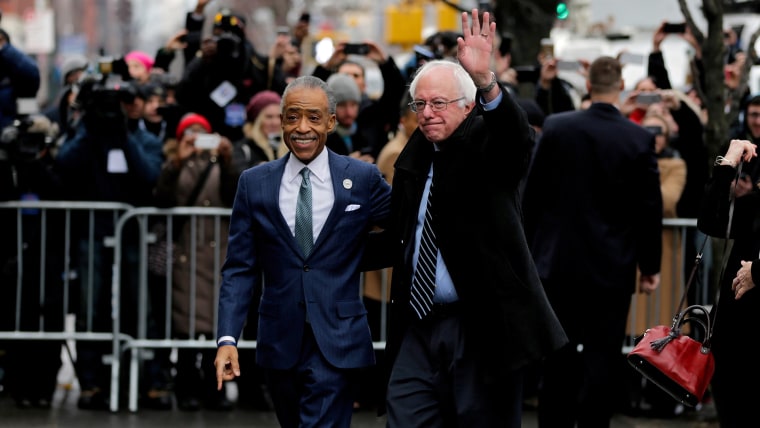The spectrum of issues surrounding race -- the inequities of the criminal justice system, unjust policing and crippling effects of poverty -- became a major focal point of Thursday night’s presidential debate, marking a critical juncture in the race as Democratic candidates vie to appeal to an increasingly diverse electorate.
Black and Latino support could make all the difference in determining which candidate comes out on top ahead of Super Tuesday. For former Secretary of State Hillary Clinton, minority communities are often considered her firewall in ensuring her success. But Vermont Sen. Bernie Sanders came out of the debate with momentum at his back, ready to chip away at Clinton's core support.
“This is one of the great tragedies in our country today. And we can no longer continue to sweep it under the rug. It has to be dealt with,” Sanders said. “So what we have to do is the radical reform of a broken criminal justice system.”
The contentious history of the host city’s spotty record on police-involved shootings was not lost on the candidates. Clinton had invited the family of a homeless man shot 14 times by Milwaukee police two years ago to attend the PBS debate as her guests.
“And we know of the tragic, terrible event that lead to the death of Dontre Hamilton right here in Milwaukee,” Clinton said. “A young man unarmed, who should still be with us. His family certainly believes that. And so do I. So we have work to do.”
Hamilton's death came just days before Wisconsin enacted reform, underscoring its necessity and making Wisconsin one of the first states in the country to mandate that all police-involved shootings be investigated independently by the state Department of Justice.
Sanders has called for the federal DOJ to step in to investigate all shooting deaths at the hands of police. On Thursday he reiterated calls for police accountability.
“I would hope that we could all agree that we are sick and tired of seeing videos on television of unarmed people often African-Americans shot by police officers,” Sanders said. “What we have got to do is make it clear that any police officer who breaks the law will, in fact, be held accountable.”
